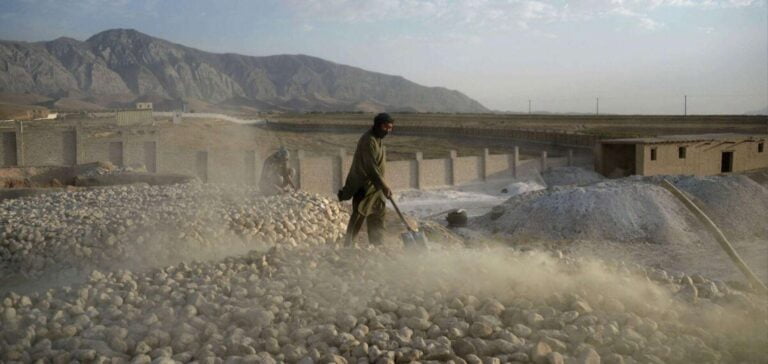Afghanistan is said to possess immense untapped resources of rare metals, notably lithium.
Many of these metals are essential to the energy transition underway in most countries around the world.
But with the return of the Taliban to power, consumer countries fear they will be unable to exploit them.
Afghanistan abounds in rare metals
Precious metals are a major geopolitical issue.
They are at the root of many wars, and keep them going.
A case in point is the Kivu war in the north-east of the Democratic Republic of Congo, which has been going on since 2004.
Many countries depend on them to produce batteries for cars or smartphones, for example.
Above all, they are increasingly in demand for transporting and storing electricity.
A phenomenon accentuated by the ongoing energy transition.
And it would appear that Afghan soil abounds in these rare metals, particularly lithium.
This is according to an annual report on Afghanistan’s mineral resources published by the US Institute for Geopolitical Studies in early 2021.
The report states that Afghanistan has deposits of bauxite, copper, iron, lithium and rare earths, among others.
Its lithium stock is said to be one of the largest untapped to date.
Raw materials needed for the energy transition
Copper and lithium are the two most coveted materials.
Copper is particularly used in the manufacture of electrical wires.
Faced with a shortage of supply and rising demand, its price has reached record levels.
Lithium, on the other hand, is essential for storingwind and solarenergy.
However, it is also difficult to obtain in view of the growing need in certain parts of the world.
The European Union is particularly dependent on lithium in its quest for carbon neutrality.
AFP reports that lithium is classified as a “critical” raw material.
Other metals such as neodymium and dysprosium, used in the manufacture of wind turbines, are also present in Afghanistan.
An unstable political situation
But today, the country’s chronic instability over the past 40 years is reaching its climax.
The Taliban regained power after the withdrawal of theNATO troops that had been there for some twenty years.
The religious fundamentalist group thus holds a considerable economic windfall in its hands.
At the same time, China is maintaining diplomatic relations with the new regime.
The country was already negotiating with the previous regime over the exploitation of these rare resources.
However, the current unstable political climate makes it almost impossible for Afghan or foreign companies to exploit these resources.





















